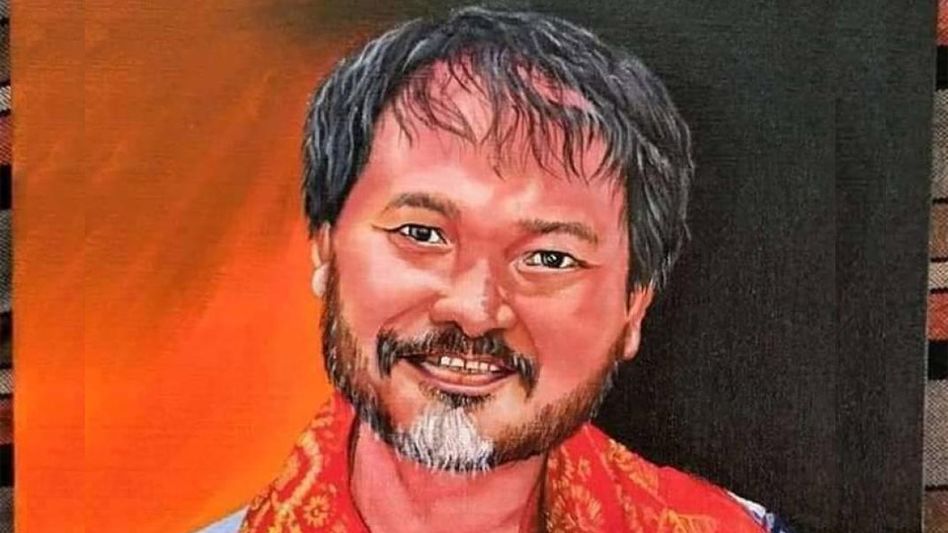UAPA and arrest of Akhil Gogoi: A tale of a draconian law
 Assam: NIA rejects anti-CAA leader Akhil Gogoi’s bail plea
Assam: NIA rejects anti-CAA leader Akhil Gogoi’s bail pleaWhat does a draconian law simply mean? It means that the legal system is unfair and could easily be exploited by the people in power/ruling class for their own benefit. This simple meaning without going into further depth can help us to analyze some laws like AFPSA, UAPA, etc that is existing today in India. These laws probably force us to think – “Whether this is a democracy”? “Whether rule of law that we know is being followed”? It will be unfair to say that the people from North East India have only experienced such laws, but yes, at least it can be mentioned that the oppression of voices from these regions in the name of such laws has been done for decades now.
Time and again political parties in power both at centre and states have changed, but the fate and experience of the indigenous people seem to remain the same. One such draconian laws through which the state has tried to suppress a people’s voice i.e. Akhil Gogoi along with his associates (which represented people) from Assam is UAPA- Unlawful Activities (Prevention) Act.
What is UAPA and its history?
In post-colonial times this law came up in the backdrop of the 1962 China war and 1965 Pakistan war and secessionist demands. The UAPA was first launched in 1967 on the recommendation of the National Integration council after being tabled and withdrawn thrice. At that time, UAPA allowed the government to impose a reasonable restriction on Article 19 of the Indian constitution with regards to the right to association. However, the roots or similarities can be found in colonial times as well. The term unlawful association was used in the Criminal Law Amendment Act, 1908 for the first time in colonial times with the objectives of criminalizing the Indian National Movement. UAPA launched in 1976 has been amended in 2004, 2008, and 2019. It is worth noting the historical linkage of the instrumental law to “silence dangerous people” and “dangerous ideas” and its usage in the present context. The interplay of the State, legislation and the individual in the context of the given law needs to be unthreaded to explore the different time zones and the implication it results in.
UAPA 2019: Engendering a system of impunity under the grab of legality
Under this new act, the National Investigation Agency has been allowed much greater leeway to take control of cases that would otherwise fall under the domain of the police in individual states. With this new amendment, the centre now can declare individuals as terrorists and not only organisation (which was the case before the amendment).
Also read: Decoding George Floyd’s Death and Kayne West’s Presidential Candidature
Akhil Gogoi arrested under UAPA
Akhil Gogoi has been arrested now for 212 days (at the time of writing the report) due to his active participation in anti CAA protests in Assam. Amidst the widespread protests against CAA, Akhil Gogoi was arrested under the stringent UAPA on December 12th, 2019 in Jorhat. A mass leader and voice of the voiceless was charged with waging war against the nation. The arrest came in the backdrop of NIA inspector general G.P Singh being sent to Guwahati to take charge of situation of the anti CAA protests in Assam.
With NIA failing to file a charge sheet within the mandatory 90 days in a case, Akhil Gogoi was warranted release but immediately rearrested on other cases. Presently, it is known that there are 12 cases against Akhil Gogoi i.e 2 cases under the jurisdiction of NIA, one under Crime Branch and the others being registered in local police stations of Assam.
The changing status quo
UAPA (amended 2019) has become one important weapon for the current political regime that is hell-bent on delegitimising any and every criticism of its execution and policies. As a person remains in prison for a longer duration of trails, it deeply affects health, dignity and also justice. This act grants absolute power to the state. Many critics say that it is the gateway to misuse anti-terror law. The urge by the experts of United Nations to India for the release of protest leaders, as stated “Authorities should immediately release all human rights defenders who are currently being held in pre-trial detention without sufficient evidence, often simply on the basis of the speeches they made criticising the discriminatory nature of the CAA’. The list includes Akhil Gogoi’s name in the concerned statement along with 10 other activists. Even though it seems that the prosecution has all machinery but the individual does not have any apparatus but the faith on the constitution and legislation pumps hope.
About the authors
Aniruddha Bora- Studied MA in Social Work in Children and Families, Tata Institute of Social Sciences, Mumbai and currently Working with Public Health Resource Network, Odisha
Shilpi Sikha Das- Pursuing PHD in Centre of Social Medicine and Community Health, JNU
Opinions expressed are that of the writer
Readers like you make Inside Northeast’s work possible.
To support our brand of fearless and investigative journalism, support us HERE.
Download:
The Inside Northeast app HERE for News, Views, and Reviews from Northeast India.
Do keep following us for news on-the-go. We deliver the Northeast.
Copyright©2025 Living Media India Limited. For reprint rights: Syndications Today









